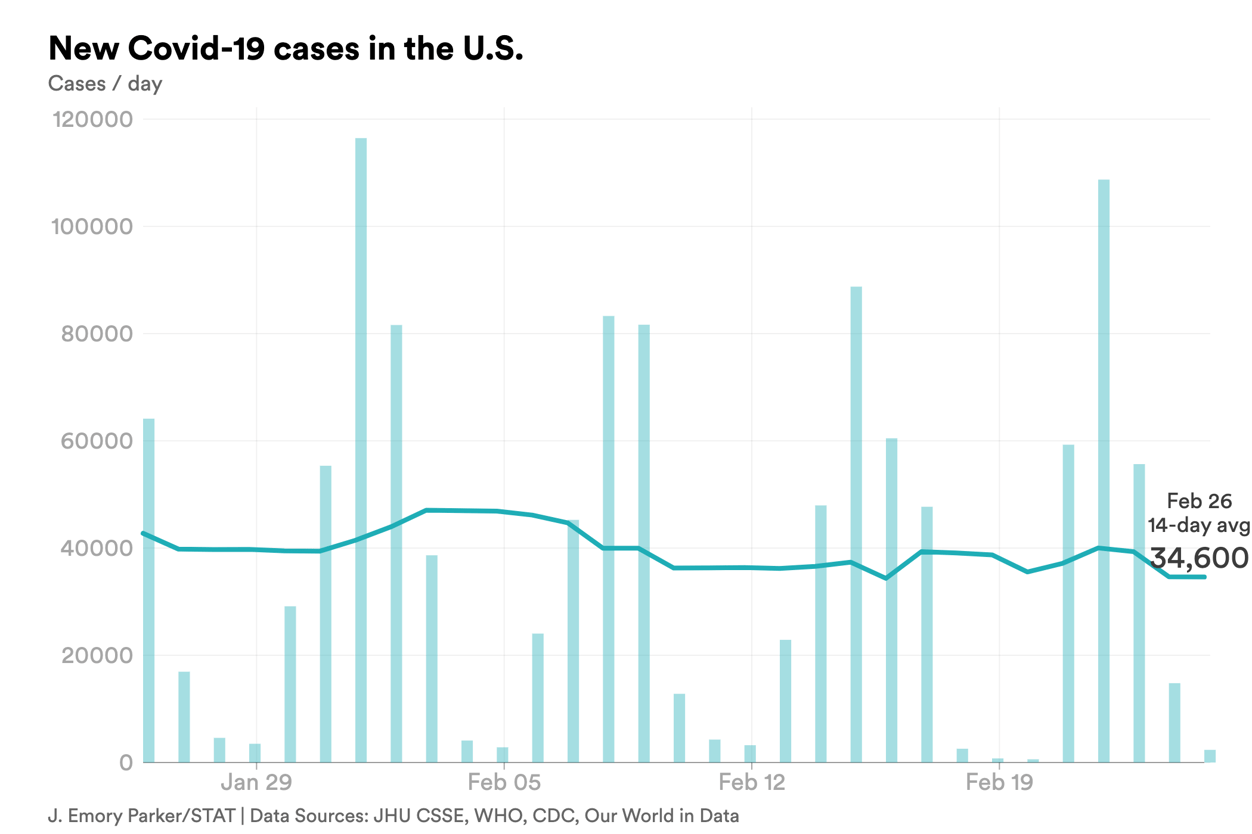Closer Look
Meet the contenders in STAT Madness 2023

It's that time of year again, and we're excited. Entries for this year's STAT Madness, our annual, bracket-style competition in biomedical research, include some of 2022's biggest discoveries, from Covid-19 and cancer treatment to medical imaging and surgery. Popular voting begins on Wednesday, March 1, when first-round pairings will be revealed, along with descriptions of all the entrants' research. Here are a few of the 64 entries:
- An easy-to-use test to measure Covid-19 antibodies
- How an unhealthy gut biome can trigger breast cancer metastasis
- A robotic drug-delivery capsule that powers its way through the perils of the digestive system
- A helmet that boosts clarity in MRI images
- The sushi-inspired discovery of genes responsible for seaweed-digesting enzymes
STAT Madness may be based on college basketball's March Madness tournaments, but its larger goal is to showcase the originality and range of U.S. biomedical research. STAT contributor Elissa Welle has more.
reproductive Health
12 states sue FDA to ease abortion pill restrictions
As we wait for a Texas judge to rule on a case challenging the FDA's approval of mifepristone, a dozen states have taken a different tack to protect access to the abortion pill, which Vice President Kamala Harris recently called a "constitutional right." Twelve attorneys general filed a lawsuit Friday to force the FDA to remove restrictions on how mifepristone is prescribed and distributed. The medication is one of only a few dozen drugs included in a program for medicines thought to carry significant risks.
The lawsuit argues that's needless for mifepristone — noting it has fewer serious side effects and deaths than more available drugs like Viagra. Under the program, prescribers must be certified by the company supplying the pill, both patients and providers must sign an agreement saying that the patient is also taking a second drug, misoprostol, to end pregnancy, and pharmacies must obtain special certification. STAT's Ed Silverman has more.
health inequity
Medical school admissions officers face barriers when advancing diversity, survey says
Affirmative action to increase diversity in organizations and institutions is banned in nine states and under fire elsewhere in the U.S. So it's sobering when the first sentence of a new study in JAMA Network Open on medical school admissions calls affirmative action the only initiative that has brought substantive change. After the researchers surveyed deans and admissions directors at 39 medical schools on other efforts to improve diversity, they concluded those schools' measures added up to "selective inclusion": the institutions admitted a few people from underrepresented racial and ethnic groups in the name of diversity, but traditional policies to preserve institutional reputation remained in place.
The admissions officers cited these barriers: a lack of leadership commitment to diversity, pressure to overemphasize academic scores and school rankings, and political and donor and alumni influences. "We must change the story, people, process, and organization of admissions," a companion editorial says.
by the numbers


No comments